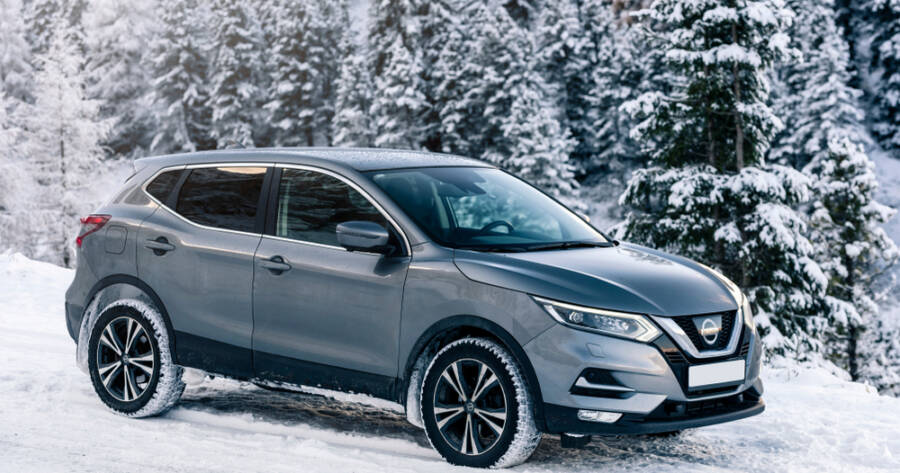Navigating varied climates requires a reliable, versatile vehicle that can handle anything Mother Nature throws your way. SUVs, with their robust design and advanced features, often rise to the occasion in this regard. From snowy mountains to sun-baked deserts, choosing the right SUV can mean the difference between a smooth journey and a challenging trek. Understanding what options are available can help make a well-informed decision tailored to diverse environmental conditions.
Understanding Weather-Ready Features
When evaluating SUVs for all-weather readiness, several features typically come into play. All-wheel drive (AWD) systems can provide enhanced traction, potentially making it easier to drive on slippery or uneven surfaces. Furthermore, SUVs with high ground clearance can help navigate snow or rough terrain, though this capability might vary depending on specific vehicle configurations and conditions.
Heated seats and steering wheels can offer comfort during frigid winters, while ventilated seating might provide relief in hot climates. Additionally, dual or tri-zone climate control systems could ensure that each passenger enjoys a comfortable environment regardless of external temperatures. Features like these often enhance the vehicle’s adaptability, though effectiveness can vary depending on individual models and user preference.
Key Factors in All-Climate Comfort
When it comes to interior comfort, modern SUVs are well-equipped to offer a range of features designed to tackle extreme temperatures. Insulated windows and advanced climate control systems can achieve better temperature regulation, a feature that is incredibly useful in mitigating external weather impacts. Maintaining a consistent cabin temperature could significantly improve the driving experience, but this might be influenced by factors such as duration of exposure and specific model capabilities.
Furthermore, a spacious interior can promote comfort while on longer journeys through various climates. Ample cargo space might also become an invaluable asset, allowing for carrying additional gear such as snow chains, extra clothing, or emergency supplies which could be essential in unpredictable weather.
Evaluating Safety in Diverse Conditions
Safety remains paramount when selecting an SUV for multi-climate use. Advanced driver-assistance systems (ADAS), including lane-keeping assist, adaptive cruise control, and automated emergency braking, might offer additional reassurance in challenging conditions, though real-world effectiveness can depend on usage and conditions.
Enhanced visibility features like LED headlights and fog lights can also potentially provide added safety benefits in low-visibility situations such as fog or snow. It’s crucial to remember, however, that while these features could enhance safety, they do not replace responsible driving practices and awareness.
Fuel Efficiency Considerations
While SUVs are often selected for their power and durability, potential fuel efficiency should also factor into your decision-making process. Fuel-efficient SUVs can potentially offer savings over the long term, especially useful during extended road trips through diverse environments. Hybrid models are increasingly popular, providing both power and efficiency.
However, various factors such as driving habits, load, and terrain can affect real-world efficiency outcomes. Additionally, considering vehicles with eco modes and stop-start systems might contribute to reduced fuel consumption during urban driving or heavy traffic. Awareness of local fuel cost variations might also influence the decision on which vehicle maximizes both utility and economy.
Off-Road Capabilities and Versatility
For those who venture off the beaten path, selecting an SUV with robust off-road capabilities might be an important consideration. Factors such as torque, drivetrain options, and wheel articulation can significantly influence an SUV’s ability to perform in rugged conditions.
However, it’s essential to remember that off-road capability can vary widely between models. Features like locking differentials, skid plates, and hill descent control could enhance off-road performance while providing additional reassurance in variable landscapes. While these features might not be necessary for everyone, they could offer peace of mind for adventures that traverse challenging terrains.
Adaptability for Urban and Rural Journeys
All-weather SUVs should ideally be versatile enough for both urban commutes and rural expeditions. Maneuverability is key, with features like rear parking sensors and cameras assisting in navigating tight urban spaces.
On the other hand, their rugged build should cater to rural landscapes and backcountry trails. This adaptability enhances the utility of SUVs as both reliable family vehicles and adventurous companions for exploring nature’s vast offerings.
Making an Informed Choice
Selecting an SUV for all-weather conditions involves evaluating various features and capabilities, bearing in mind personal preferences and specific needs. From advanced safety systems to comfort and versatility, the right SUV can enhance travel experiences across diverse climates.
Remember, while specifications can guide your choice, real-world performance might differ based on numerous factors like driving style and environment. Therefore, it’s valuable to approach your decision thoughtfully, considering both immediate requirements and potential future shifts in your lifestyle or climate patterns.

